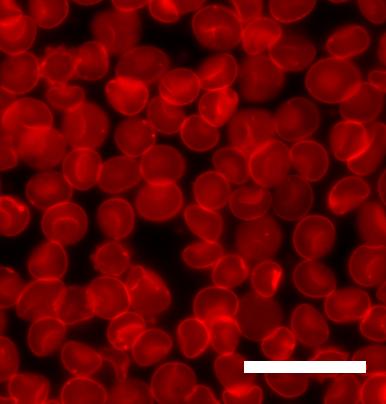Modified blood cells deliver antibiotics to kill dangerous bacteria
Date: 4.11.2022
Drugs given to the whole body can be too much of a shotgun approach, damaging cells that aren’t meant to be targeted. A new study has found that cloaking drugs inside red blood cells could help guide powerful but toxic antibiotics to target bacteria.
 A few years ago scientists at McMasters University in Canada developed what they called “super-human red blood cells” – essentially, they pull out the innards of normal blood cells and stuff them full of drugs instead. When the hybrid blood cells are injected back into the body, they theoretically should be able to carry the drug payload safely, without the immune system attacking them.
A few years ago scientists at McMasters University in Canada developed what they called “super-human red blood cells” – essentially, they pull out the innards of normal blood cells and stuff them full of drugs instead. When the hybrid blood cells are injected back into the body, they theoretically should be able to carry the drug payload safely, without the immune system attacking them.
The researchers tested the drug delivery system with an antibiotic called Polymyxin B (PmB), which is effective at killing bacteria that are resistant to other drugs. But that comes at a cost to healthy cells, with the potential for kidney damage, neurological problems, and other serious side effects. As such, it’s considered a last-resort antibiotic.
In cell culture tests in vitro, the team loaded the blood cells with PmB and targeted them to drug-resistant E. coli. They found that the cells had a loading efficiency of around 90%, and were effective in delivering PmB to the bacteria in levels high enough to kill them.
To test the targeting, the team also exposed a different bacterium, Klebsiella aerogenes, to the hybrid cells coated with E. coli antibodies, and found that they were insufficient to kill the bugs. That, the team says, shows that the selective targeting works.
Image source: MDougM / Wikimedia Commons.























